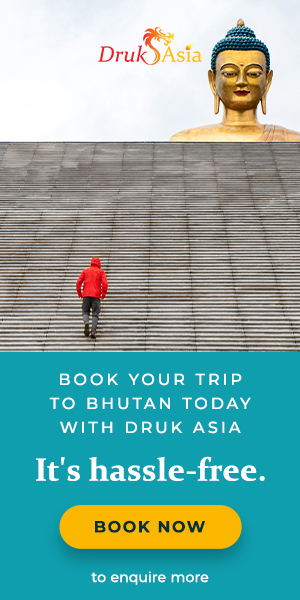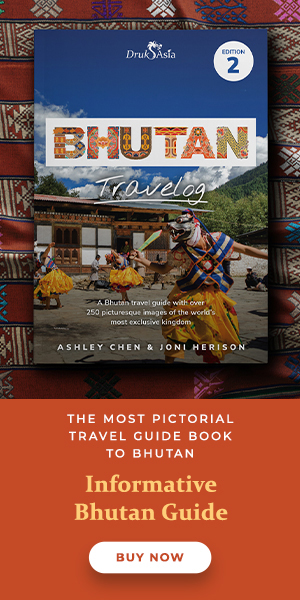BHUTAN
Travelog
22
Apr, 2025What Is Bhutan s High Value Low Volume Tourism Policy Everything You Need to Know

What Is Bhutan’s High Value, Low Volume Tourism Policy?
This tourism strategy prioritises quality experiences over quantity. By welcoming a limited number of mindful travellers, Bhutan seeks to safeguard its pristine environment and deeply rooted cultural traditions, while ensuring that tourism benefits are shared with local communities. It’s a key pillar of Bhutan’s sustainable development efforts and supports the country’s unique Gross National Happiness framework.

Why Did Bhutan Implement This Policy?
Bhutan introduced this policy to mitigate the risks of over-tourism and ensure visitors experience the country in an authentic and respectful way. The approach focuses on:
-
Cultural Preservation – Protecting traditions from dilution and commercialisation
-
Environmental Protection – Reducing the ecological footprint of travel
-
Exclusive Experiences – Offering unique and immersive cultural encounters
-
Sustainable Development – Supporting local livelihoods through tourism
This approach allows Bhutan to regulate the pace and nature of tourism growth while maintaining its values and identity.
What Are the Goals of the Policy?
Preserve Culture and Environment
Bhutan’s policy ensures that future generations can enjoy the nation’s vibrant customs, festivals, and unspoiled landscapes. Initiatives like community-based tourism and eco-lodges allow tourists to engage meaningfully with local communities while promoting environmental responsibility.
Promote Sustainable Tourism
Travellers are encouraged to participate in activities like wildlife conservation, organic farming, and artisan workshops. These experiences foster meaningful cultural exchange and directly benefit local residents, reinforcing tourism as a force for good.
Maximise Economic Benefits
By emphasising locally run services and experiences, Bhutan ensures that tourism revenue reaches communities. This enhances job opportunities, supports traditional crafts, and improves local infrastructure—without overwhelming the environment or culture.

How Does This Policy Work?
Sustainable Development Fee (SDF)
As of 2023, Bhutan requires all international visitors to pay a Sustainable Development Fee (SDF) of USD $100 per person, per night. This fee directly supports Bhutan’s development priorities in education, healthcare, environment, and culture.
-
Tourists can book accommodation and services independently—especially within Paro and Thimphu.
-
A licensed Bhutanese guide is required when visiting destinations outside of these districts.
This flexible, pay-as-you-go model replaces the previous mandatory package tour structure and continues to uphold the principles of high value, low volume tourism.
Emphasis on Quality Over Quantity
Rather than targeting large numbers, Bhutan focuses on attracting conscious travellers seeking deep cultural engagement. From spiritual retreats to artisan interactions, the policy fosters thoughtful tourism that aligns with the country’s values and ecological integrity.
What Are the Benefits of This Policy?
Protection of Culture and Environment
Through controlled tourism and clear guidelines, Bhutan safeguards sacred sites, traditional practices, and its status as one of the only carbon-negative countries in the world.
Sustainable Development and Resource Preservation
The SDF supports vital national projects while encouraging travellers to be environmentally responsible. Community-led homestays, eco-lodges, and cultural programmes demonstrate how tourism revenue can fuel conservation and development.
Economic Growth and Job Creation
Tourism plays a significant role in Bhutan’s GDP. By focusing on quality experiences, the industry creates employment for guides, artisans, and entrepreneurs while fuelling regional growth and national pride.

What Are the Challenges?
Limited Revenue from Low Tourist Volume
Restricting the number of visitors limits potential earnings. To balance this, Bhutan must focus on value-added experiences and explore complementary revenue sources.
Balancing Growth with Heritage
Striking the right balance between tourism income and cultural preservation remains a challenge. Ongoing dialogue among stakeholders and smart infrastructure development are essential to prevent cultural erosion.
Community Inclusivity
To prevent economic disparity, policies must ensure that all communities—especially rural ones—benefit from tourism through education, equitable access, and capacity building.
How Has This Policy Shaped Bhutan’s Tourism Industry?
The policy has transformed Bhutan into a premier destination for sustainable, responsible travel. The visitor demographic is shifting towards environmentally conscious, culturally curious travellers, prompting tourism businesses to innovate and stay true to Bhutanese values.
This has strengthened community pride, elevated Bhutan’s global brand, and positioned it as a leader in sustainable tourism.
Frequently Asked Questions (FAQs)
What is Bhutan’s “High Value, Low Volume” Tourism Policy?
It’s a strategy that limits tourist numbers and focuses on high-quality, sustainable travel aligned with Gross National Happiness.
Why did Bhutan adopt this policy?
To preserve its environment and culture, prevent over-tourism, and ensure tourism benefits all citizens.
What is the Sustainable Development Fee (SDF)?
As of 2023, international tourists must pay USD $100 per person, per night. This supports Bhutan’s healthcare, education, and conservation efforts.
Do I need a tour operator to visit Bhutan?
Not if you’re visiting only Paro and Thimphu—you can book directly. For travel beyond these areas, a licensed Bhutanese guide or tour operator is required.
Find out more about the requirements of engaging Bhutan tour operator here.
Is it worth visiting Bhutan under this policy?
Absolutely. The policy ensures a more authentic, serene, and culturally enriching experience compared to traditional mass tourism destinations.
Follow Druk Asia on Facebook or Instagram for more updates on the Kingdom of Bhutan.
Comment posted!
Thank you so much for taking the time to leave us a comment.
Discover
Breathtaking
Bhutan.
Thank you for subscribing!
You have successfully subscribed to our newsletter.

